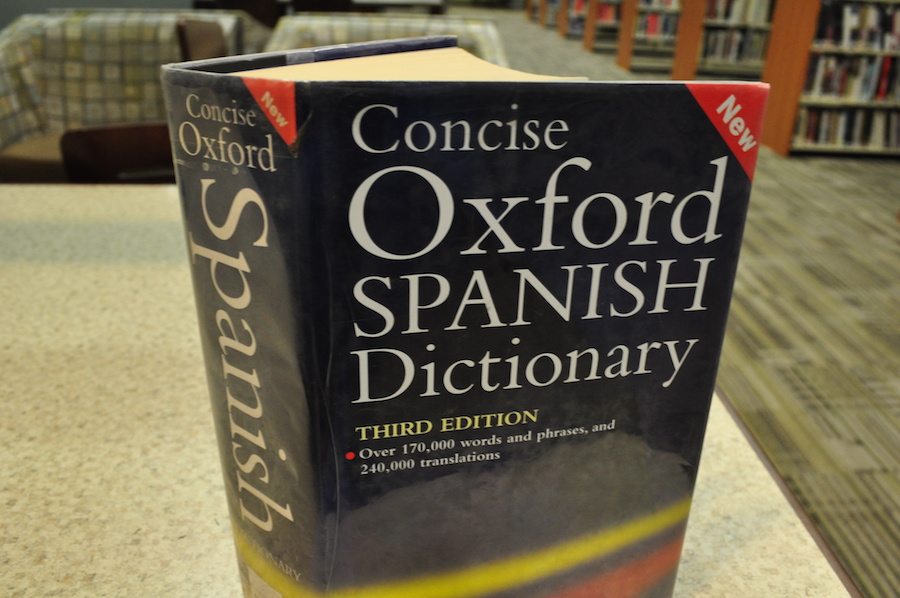
How living in the U.S. affects Latinos’ Spanish proficiency
 As a Mexican-American, I’ve had to traverse a weird limbo of being proud of my heritage while also embracing American societal norms.
As a Mexican-American, I’ve had to traverse a weird limbo of being proud of my heritage while also embracing American societal norms.
For instance, growing up, I was teased about my accent. My Mexican friends said I sounded too white when I spoke, while my American friends said I had a Spanish accent. I felt like I wasn’t Mexican enough by other Mexicans’ standards and I wasn’t American enough according to other Americans.
People have an outdated belief that Hispanics must speak Spanish. Movies, pop culture and social media sure make it seem like that’s the case.
When a person of Hispanic descent does not speak Spanish, they are seen as not “authentic,” as if it’s a disgrace to their culture for not knowing their mother tongue.
According to the Pew Research Center, 71 percent of Hispanics say it’s not necessary to speak Spanish to be considered Hispanic, while 28 percent say it is necessary.
In this case, I agree with the majority of Hispanics. Being Hispanic and not knowing Spanish does not make you any less Hispanic than someone who does speak Spanish. It’s a flawed argument. Your identity is not defined by other people’s expectations.
Even when Latinos do speak Spanish, they are often judged by other Hispanics and Americans for failing to reach perfect fluency. I like to order food in Spanish at Mexican restaurants — I feel like they’ll make the food better. Yet I always feel anxious and self-conscious when I do so because I worry that my accent is not up to par with other Latinos’ Spanish — partly because I can’t naturally roll my Rs. So even though I am a first-generation Mexican-American, I still worry about my use of Spanish because I’m scared that other Latinos will look down on me for failing to pronounce words correctly.
Does speaking Spanish automatically prove that you’re an “authentic” Hispanic? No. Then everyone who knew Spanish would brag about being Hispanic, even if they’re not.
The only reason I know Spanish is because my parents immigrated here. I had no choice but to learn Spanish, or else I would not be able to communicate with them. If my parents were proficient in English, I’m sure that I would have grown up in an English-dominant household.
Nevertheless, it’s notable that speaking Spanish is important to Hispanics. A survey conducted by the Pew Research Center asked, “How important is it to you that future generations of Hispanics living in the U.S. be able to speak Spanish?” 95 percent of Latinos agreed that it’s very important.
But data also shows that only 7 percent of foreign-born self-identified Hispanics say they mostly use English, with this level increasing to 43 percent in the second generation and 75 percent in the third and higher generations. Or another way to put it: each successive generation of Latinos is less likely to know Spanish than the last. Why might this be? Maybe because living in the U.S. requires the population to know English. Imagine living in the U.S. and not knowing English. Imagine the struggle.
Hispanics should not be criticized for not knowing Spanish. It doesn’t define your identity. I always had a hard time understanding why I couldn’t fully fit in as a Mexican or American. I felt like a mudblood.
Now, I embrace my cultural heritage. I’m proud to be Mexican because I get to enjoy the amazing food and music that my culture has to offer. I’m proud to be American because I love living in the U.S. I’m the best of both worlds.
Written by: Alejandro Lara — lmlara@ucdavis.edu
Disclaimer: The views and opinions expressed by individual columnists belong to the columnists alone and do not necessarily indicate the views and opinions held by The California Aggie.




